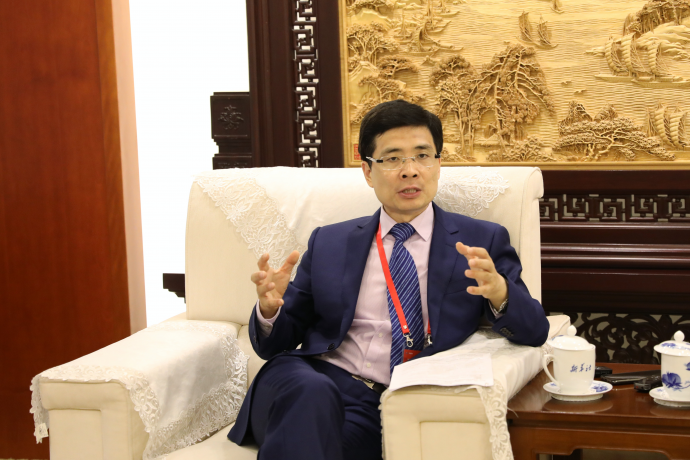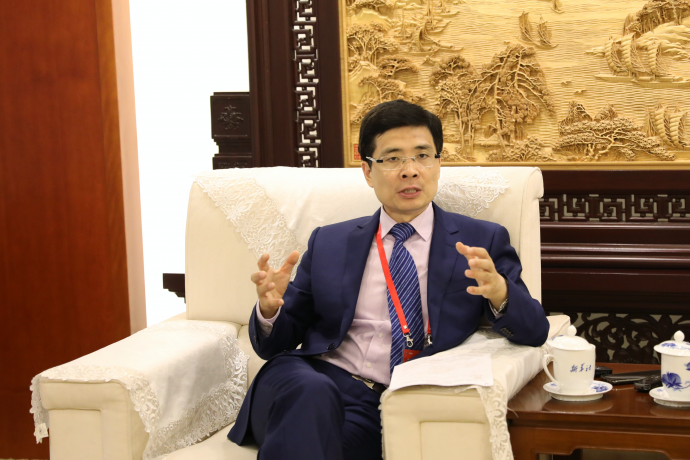
Photo: Zhou Yunjie, president of Haier Group, gives an inclusive interview to Xinhua. (Xinhua/Zhou Yi)
BEIJING, Aug. 17 (Xinhua) -- Chinese businesses need to focus more on brand ecology in the era of Internet of Things (IoT), said Zhou Yunjie, president of Haier Group, in a recent interview.
Zhou gave the interview on the sidelines of the ceremony of Haier's entering Xinhua News Agency's National Brands Project, which was held in Beijing on Tuesday.
During this event, Haier and Xinhua also jointly launched the research center for brand ecology, and agreed to cooperate in brand building.
Haier this year proposed the concept of "ecological brand" amid the IoT boom, emphasizing the use of digital technology to deeply explore the dynamic needs of customers and taking advantage of the third-party resources to provide all-round services for the customers.
Haier's core competitiveness lies in innovation. Brands in the Internet era more emphasize platforms, while brands in the traditional age more stress the products, said Zhou.
In recent years, Haier has integrated global resources to form a comprehensive global R&D system, and built a number of platforms in an innovative manner, including "U+" smart life platform and COSMO Plat industrial Internet platform to achieve interconnection among home appliances, and interactions between the people and home appliances, and meet users' needs with personalized services.
"By proposing the concept of 'ecological brands', Haier hopes to open up a new way of branding for Chinese companies in the era of IoT and help its peers better compete in the international market," Zhou said.
In the process of going global, Haier has long adhered to its own brands. By gradually gaining a foothold in the U.S. market via selling refrigerators, Haier has become one of the well-known brands in the eyes of local consumers in Europe and the U.S.
Haier launched its high-end brand Casarte in 2016. It also acquired overseas brands such as Fisher & Paykel, New Zealand's high-end kitchen appliance brand, and GE Appliances, former subsidiary of General Electric (GE). (Edited by Li Wenxin, hupingchao@xinhua.org)




 A single purchase
A single purchase









